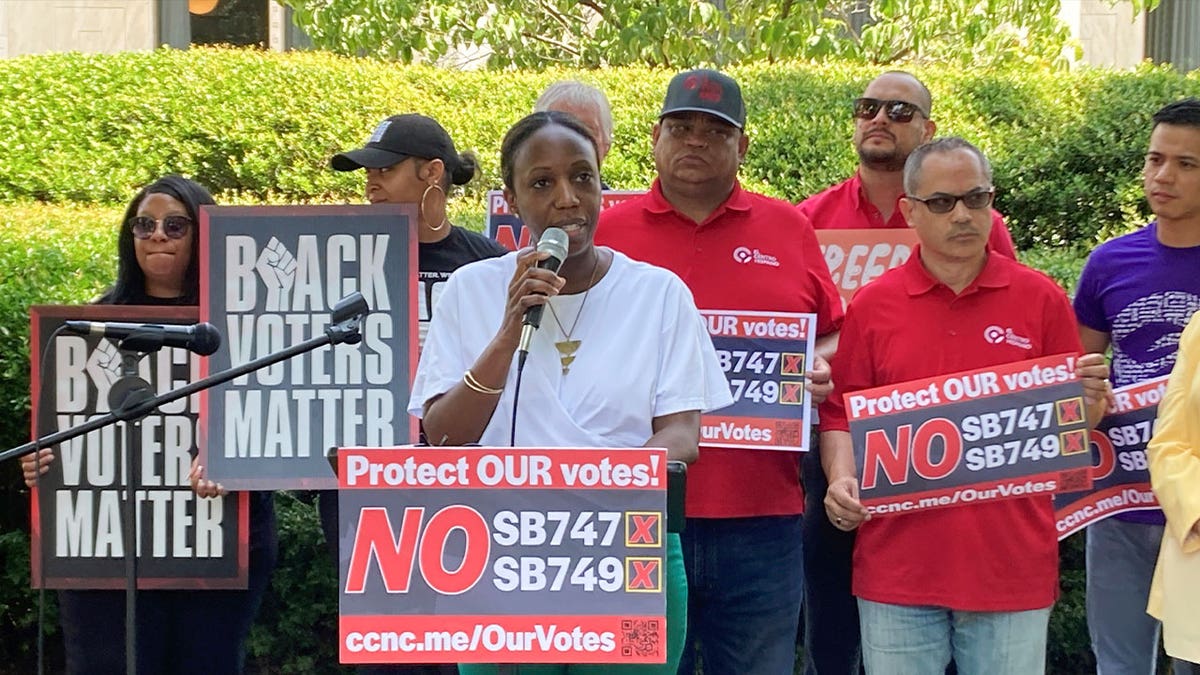Republican lawmakers in North Carolina have initiated efforts to reshape the state's voting landscape. Two proposed bills aim to modify early and absentee voting procedures and shift control of the state election board from the governor to legislative leaders.
Bill sponsors claim the measures are designed to enhance election integrity and public trust. They argue that by giving the legislature more authority over elections, they can ensure fairness and prevent potential manipulation. Senate Majority Leader Paul Newton emphasized the importance of bolstering voter confidence, regardless of election outcomes.
However, critics view these proposals as a partisan maneuver disguised as election reform. Voting rights advocates argue that the changes could disenfranchise eligible voters and unduly influence election results. The ACLU of North Carolina's executive director, Chantal Stevens, characterized the bills as an attempt to consolidate power at the expense of voters.

Several provisions in the proposed legislation echo previous attempts at voting law changes that were vetoed by Governor Roy Cooper. With Republicans now holding a veto-proof majority, these measures are more likely to become law. One key change would restructure the State Board of Elections, expanding it from five to eight members and giving legislative leaders appointment power. Currently, the governor appoints the board, with a majority typically representing the governor's party. The proposed change would likely result in an even split between Democrats and Republicans.
Opponents express concern that an evenly divided board could lead to deadlock and legal challenges. They also point to potential issues with early voting site selection if county election boards, also proposed to be evenly split, cannot reach agreement. This could result in only one early voting site per county.
The omnibus voting bill includes over 30 sections, addressing various aspects of election administration. One contentious provision would eliminate the three-day grace period for mailed absentee ballots, requiring them to be received by the close of polls on Election Day. Other provisions seek to prohibit private funding for election administration and require courts to share information about potential jurors who are not U.S. citizens with election officials.
One provision regarding same-day voter registration and voting has been revised after initial concerns. While the original version mandated provisional ballots for all same-day registrants, the amended version narrows the scope of provisional ballot use. However, some critics still worry that the change could disenfranchise college students and other eligible voters.
Comments(0)
Top Comments